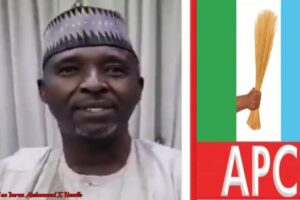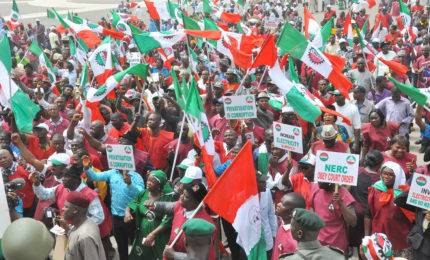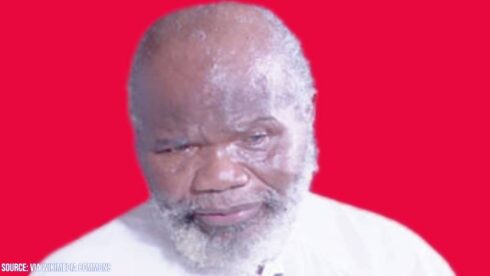The Nigeria Labour Congress (NLC) appears poised to embark on industrial action today (Monday), as workers in the Federal Capital Territory (FCT), Cross River, Nasarawa, Ebonyi, Kaduna, and Zamfara states prepare to down tools. This follows the failure of state authorities to fully implement the new N70,000 minimum wage, despite extensive deliberations.
NLC in FCT and Nasarawa Ready for Action
In the FCT, the NLC Council had earlier directed workers across the six Area Councils to commence an indefinite strike from December 1, pending further instructions. This directive was contained in a letter signed by the FCT NLC Chairman, Stephen Knabayi, who expressed dissatisfaction with the area council chairmen for failing to implement the minimum wage despite receiving official communication from the NLC National Executive Council.
Similarly, in Nasarawa State, the NLC chapter declared readiness to strike over non-payment of the new minimum wage. NLC Chairman Ismaila Okoh confirmed that although the state government agreed to pay N70,500, no formal agreement had been signed. Okoh emphasized that unless documentation is finalized by midnight, workers would fully comply with the strike directive, reflecting widespread frustration among the labor force.
Kaduna Implements Minimum Wage but Faces Discontent
Despite paying above the mandated N70,000 minimum wage, the Kaduna State Government is not exempt from the impending industrial action. Governor Uba Sani’s administration began paying N72,000 as the least salary in November, yet the state NLC insisted on proceeding with the strike.
In a statement, the Chief Press Secretary to the governor, Ibraheem Musa, argued that the government had adhered to the National Minimum Wage Law and cited financial constraints as a challenge to further consequential adjustments. Musa noted that the state’s revenue is heavily strained, with over 90% of its income now allocated to salary payments, leaving limited resources for other developmental needs. He urged patience from the union, stressing Governor Sani’s labor-friendly policies, including free transportation for civil servants.
Ebonyi and Zamfara Workers Demand Immediate Implementation
Ebonyi State workers are set to join the strike following what NLC Chairman Dr. Oguguo Egwu described as Governor Francis Nwifuru’s failure to follow due process in implementing the new wage. Despite an initial announcement of compliance during the Ojiji festival in September, no tangible progress has been made, prompting the union to declare a one-week warning strike starting today.
Similarly, Zamfara State workers have resolved to participate in the industrial action due to the non-payment of the new minimum wage. NLC Secretary Ahmed Abubakar confirmed that while discussions with the state government remain ongoing, workers feel compelled to express their grievances through the strike because of lack of progress in the negotiation process and lack of commitment of the implementation of minimum wage.
Mixed Signals in Cross River State
The situation in Cross River State remains fluid, with conflicting reports about a potential agreement to forestall the strike. NLC Chairman Gregory Ulayi had earlier announced plans for an indefinite strike if the new wage was not implemented. However, unconfirmed reports suggest that a late-night agreement was reached on Sunday between the state government, NLC, and TUC to begin paying the N70,000 minimum wage. Attempts to verify this development were unsuccessful at the time of filing this report.
The looming strike highlights ongoing tensions between labor unions and state governments over the implementation of the new minimum wage. While some states have made progress, unresolved issues and inconsistencies in agreements have left workers feeling neglected. If these matters remain unaddressed, the industrial action could cause significant disruptions across critical sectors in the affected states. Governors must take proactive measures to stem the tide of industrial actions, which could further exacerbate the already dire economic situation caused by the federal government’s recent economic reforms.
Table of Contents
Discover more from OGM News NG
Subscribe to get the latest posts sent to your email.














